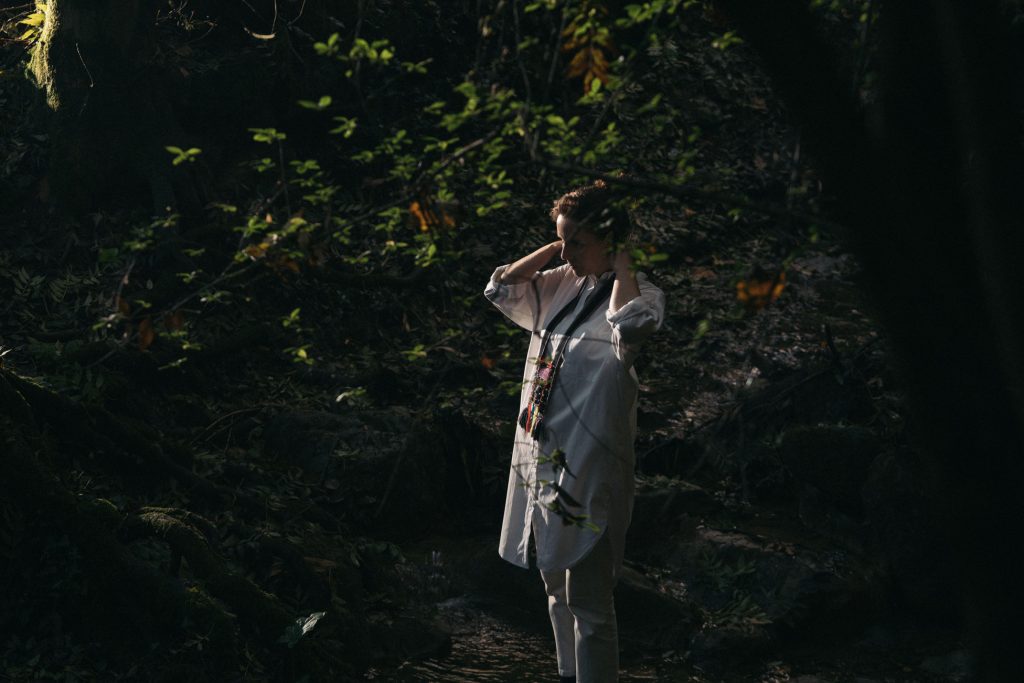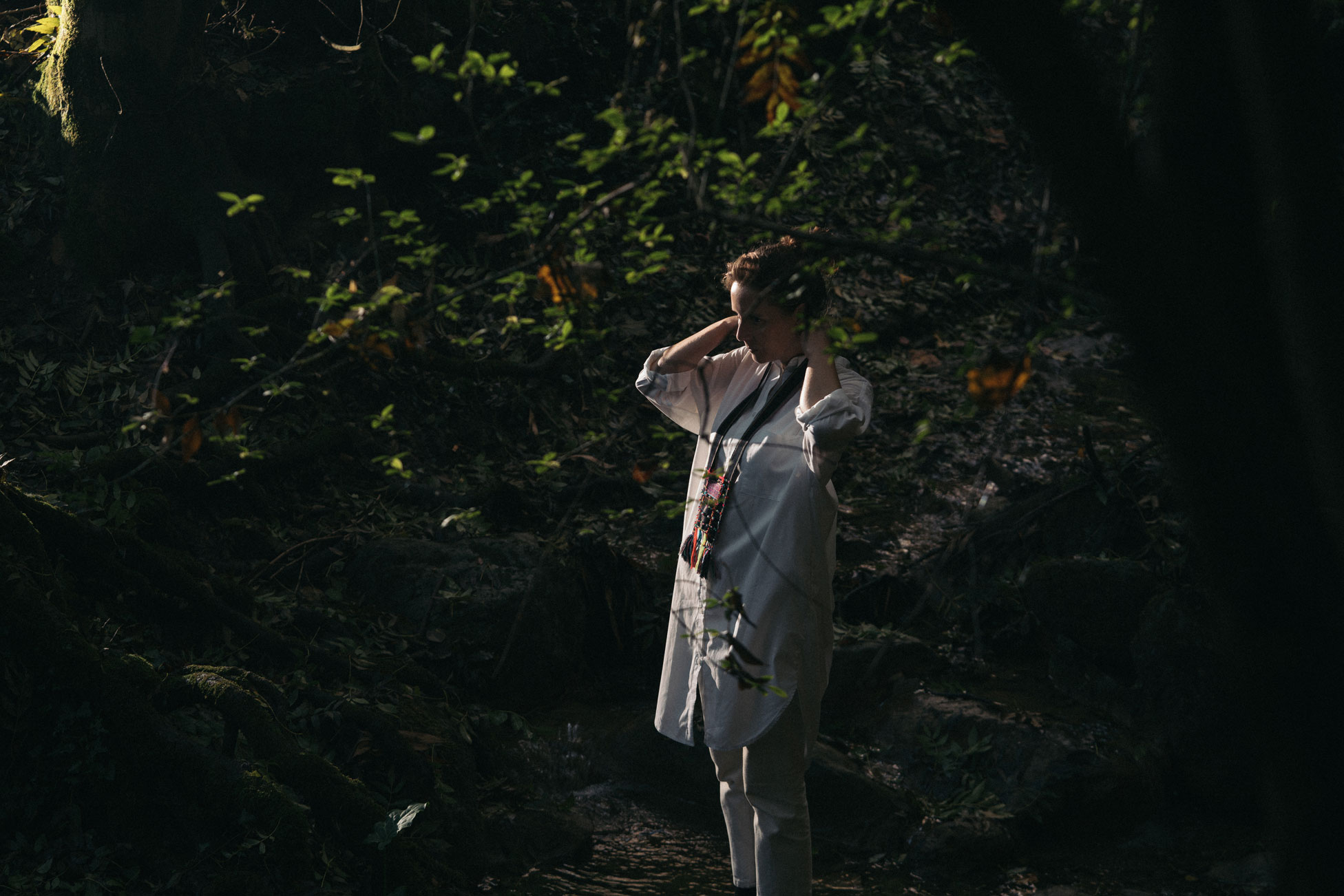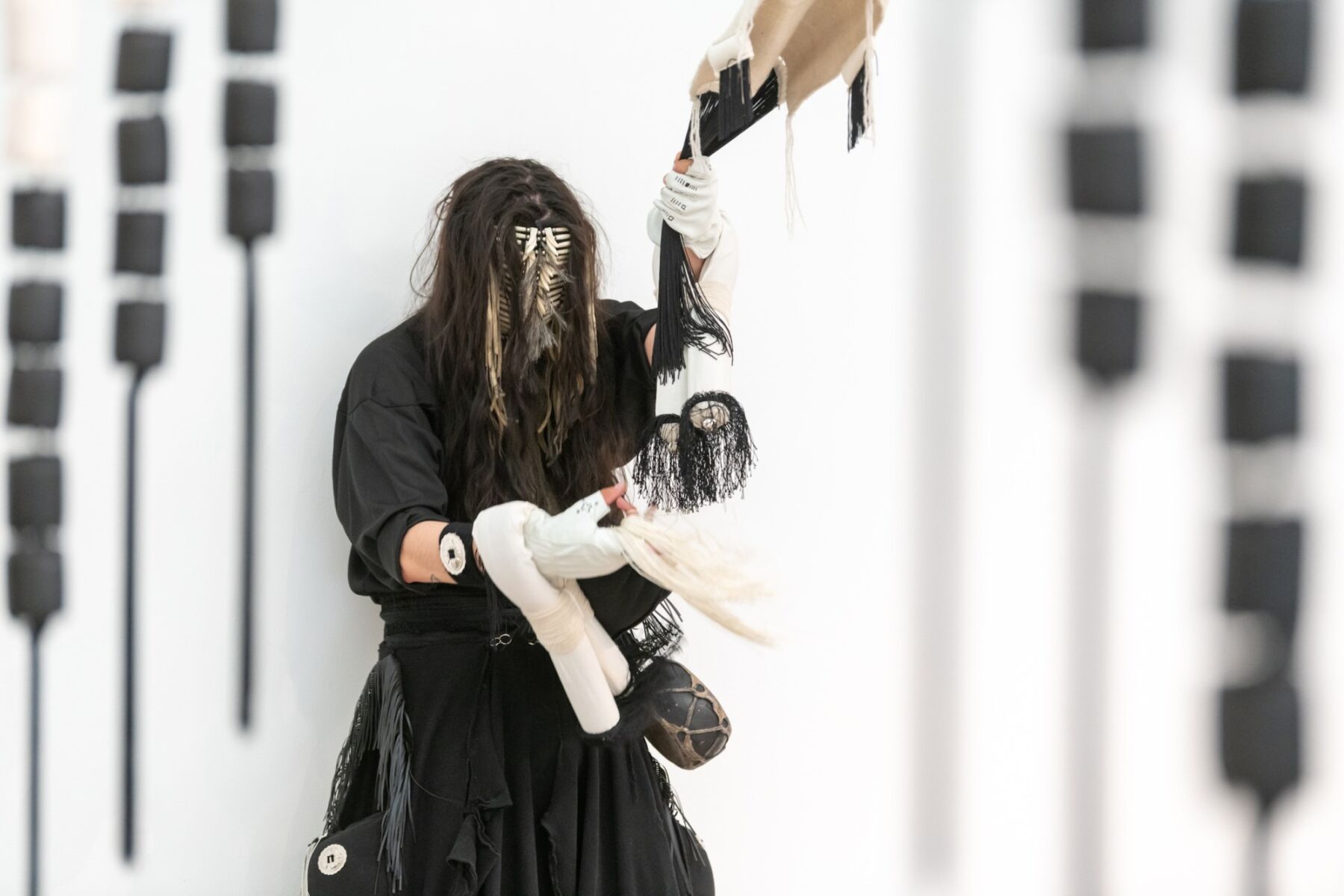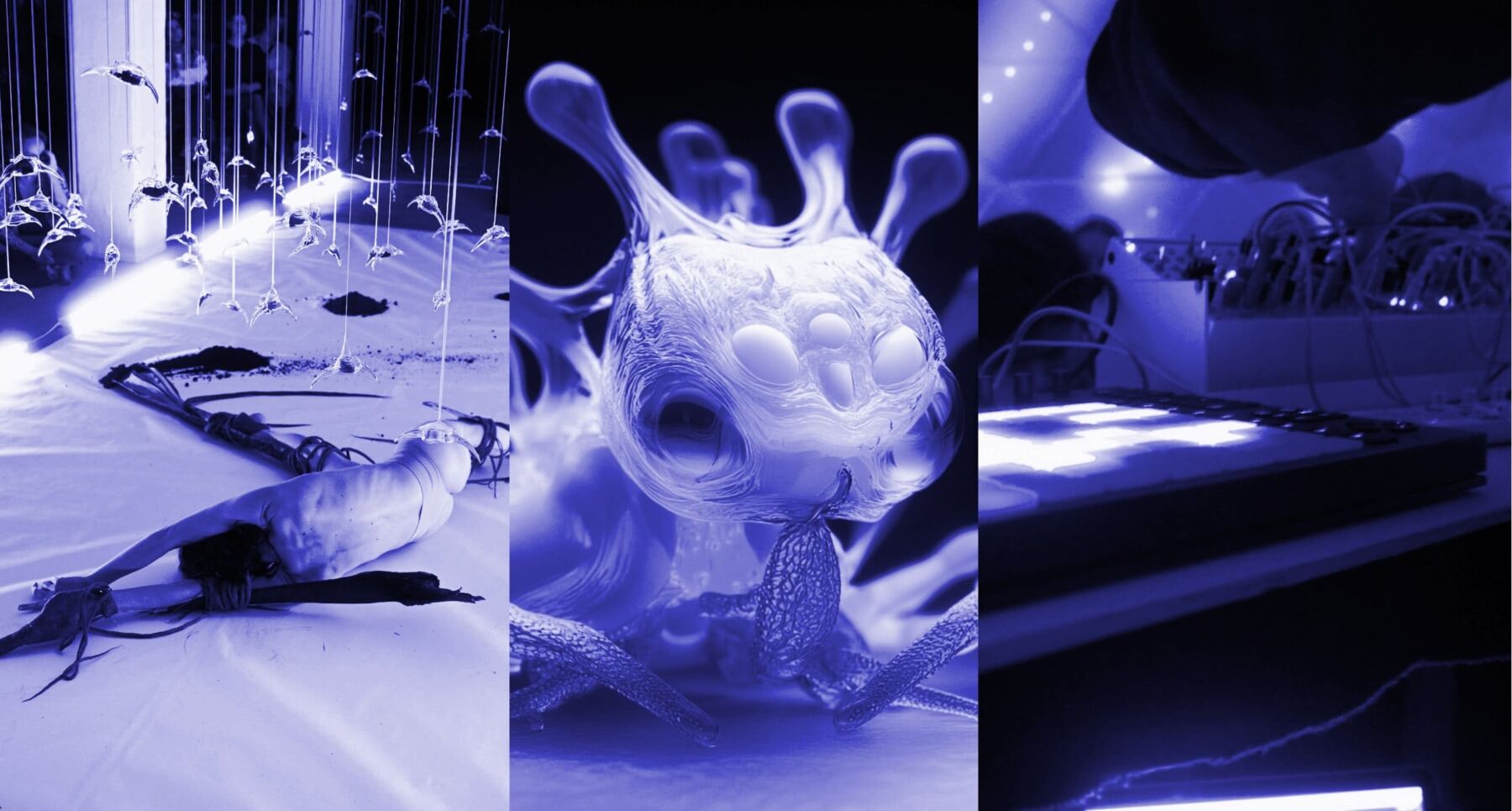Text by CLOT Magazine

Our next mixtape instalment comes from Sara Berts, an Italian composer and sound artist. Sara’s work is saturated with elements from the natural world blending with electronics. She defines her music as a meeting ground, a place of active exchange between two bandwidths of reality, the visible world and its allusive aliveness of another order of being. And following this premise, she prepared this mixtape, a flow and exchange without an intention, and start playing and listening, inside and outside, while things start shaping up bit by bit.
Sara is soon publishing her debut EP, Ayni, in the Gang of Ducks record label and self-described the record as a gift from the plants and for the plants. Field recordings flowing through the whole record come from the Peruvian Amazon forest, where she spent 3 months in 2019 while seeking personal healing. All the other sounds came from the Buchla Easel and were recorded in Italy during the suspension time of the 2020 strict lockdown.
As she puts it, two different times and spaces are linked together through isolation and uncertain feelings for the future. However, Ayni doesn’t contain any element of darkness but is inspired by a sense of redemption and healing arising from these events.
A thoroughly immersive record that deserves a deep listening to explore and appreciate all the different shades of sound and emotion it contains, which sounds and feels specially crafted to ease the listener into a new season of hopeful renewal.
You are about to release a new EP, Ayni. Could you tell us a bit about the intellectual process behind its inception? And what were you exploring with it at the technical level?
Ayni came to life as I found myself isolated at home in Italy during the strict lockdown of March 2020 with a Buchla synthesizer lent to me by a generous friend.
I was listening and editing some field recordings I took in 2019 in the Peruvian Amazon, I knew I would make something out of them, but I didn’t know what until I found the Buchla. Well, until the Buchla found me, I’d say.
I had recently returned from Perú, an incredibly supportive journey for my health, and my heart was singing with gratitude and still is. Ayni tells the story of those months spent in the jungle.
In Ayni, you have used field recordings from the Peruvian rainforest: What do field recordings bring to your compositions? How have you used them in your new album?
I started to collect field recordings five years ago as I travelled through Israel, Palestine and Jordan. In the beginning, I was recording to have acoustic memories from my travels. I’d come home and start listening to long hours of soundscapes on my Zoom recorder.
Then I noticed how field recordings inspired me and invited me to dialogue with them. Listening to what I’ve recorded out there in the world is like hearing someone jamming and they are inviting me to join the session. That’s how I used field recordings in Ayni; I’ve put the rain forest on and waited for the invitation to join with the Buchla.
The album’s sound feels very delicate and intricate, described to promote deep listening, discipline established by Pauline Oliveros to promote a more profound and active listening. In your opinion, what does Deep listening awaken inside the listener? or what you are trying to awaken with your music?
I believe deep listening is beneficial for the listener and for the composer. It is listening to that brings you out of the fence of logic and sets you on a wider wavelength. I find it has an impact on our perception, it reestablishes calm and presence in our bodily experience. I hope the energy that comes out of my work can be beneficial in its broader sense.
We’ve spoken before about the relationship between a musician and modular synths, and the symbiotic interactions between the human and machine. What is your relationship with the Buchla Easel synth when you play it?
The Buchla looks alive to me more than any other synth I’ve worked with. It feels like I’m playing an instrument and have developed a relationship with it. Discovering the Buchla for me was a process of surrender. Initially, I tried to be the one in charge, deciding where I wanted to go, but it felt like I was fighting with it. So, now, I sit and ask the instrument: “ok, what do you want to do today?” and when I don’t interfere with my desire for control, the music flows. And it is very transformative, very therapeutic.
You self-described the record as a gift from the plants, and for the plants, how do you balance nature with the current screen/digital overload?
I feel very lucky because my house is surrounded by nature, so whenever I look away from the screen, I see trees, birds and squirrels. That’s very calming. I also live with a dog and walk with her in the nearby woods once a day. However, sometimes I feel overwhelmed by digital communication and the amount of information we process daily on our devices. A certain steadiness is required to best use technology to our advantage without being mentally exhausted and stressed.






